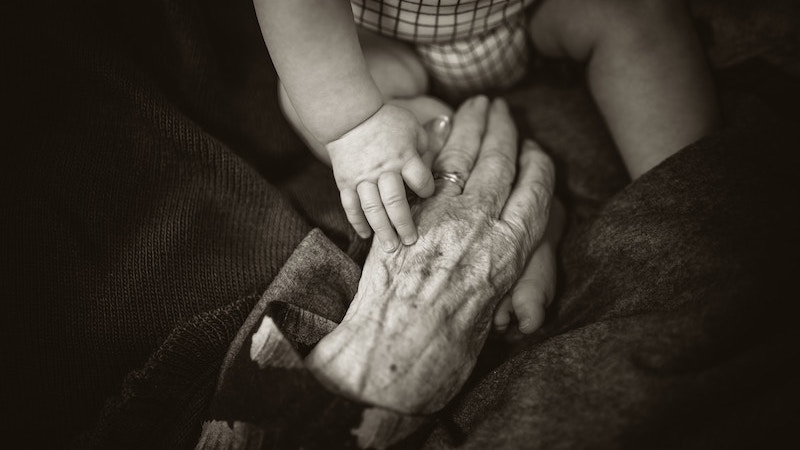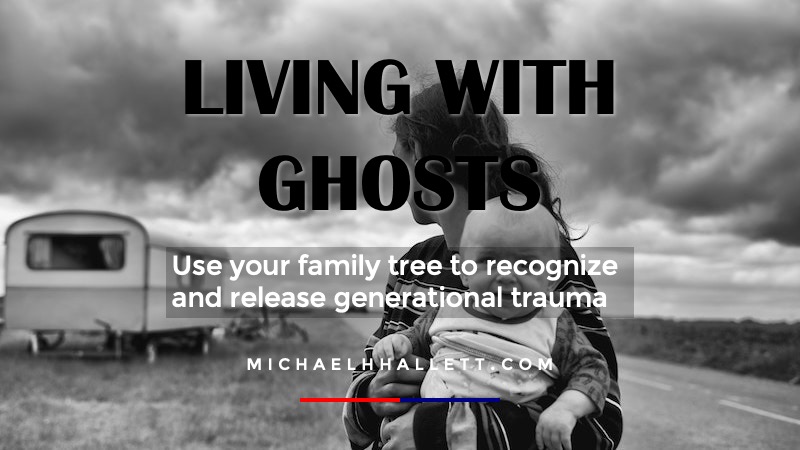Measuring wellbeing – the Family Stability Index
- 16 February 2020
- Posted by: Michael H Hallett
- Category: Generational trauma ,

I’ve blogged a lot about unconscious shame, and also written a little about generational trauma. This is inherited trauma, like a superficially mild case of PTSD that comes from scandals and traumatic events in recent family history.
Whoever experienced the traumatic event was never able to process it, which meant that the unprocessed pain and shame was passed on to their children. The children then act as if had actually experienced the trauma, sometimes to a quite debilitating extent.
However, because the child never experienced the trauma, it can be quite hard to make the connection to events one or two generations before—and therefore quite hard to diagnose the generational shame and respond appropriately.
Stability
So how can you identify possible instances of generational shame that may be affecting you or someone in your family? One of the indicators of generational shame is a lack of stability within a family.
Where does family stability come from? The youngest generation, the kids, are growing up and terrorising everyone. Their parents are struggling with money, jobs and parenting. They’re usually the most stressed family members.
A lot of stability comes from grandparents. They’re older, wiser; more stable emotionally and financially, and often have time on their hands. They step in when help is needed—whether it’s last minute babysitting, a short-term loan or a place to stay.
Family Stability Index
So a ‘quick and dirty’ way of gauging your family’s stability is the number of birth grandparents (as opposed to step-grandparents) who were around at the time of your birth. I call this the Family Stability Index—simply because it’s less of a mouthful than the Grandparent Stability Index.
A ‘quick and dirty’ way of gauging your family’s stability is the number of birth grandparents (as opposed to step-grandparents) who were around at the time of your birth.
This is a simple scale that runs from 4 down to 0. I invite you to think about how many of your natural grandparents were welcome members of your family when you were born. I say ‘welcome’ because if you have grandparents who were alive but excluded from the family—as I did—that’s a red flag for generational trauma. The lower the score on this scale, the greater the incidence of abandonment, divorces, and early deaths.
Having step-grandparents is generally better than having no grandparents, yet it remains an indicator of disruption (i.e. instability) in the family.
4 grandparents
If you had all four natural grandparents around, that’s great. Your family had as much stability—at least in terms of generational continuity—as possible.
3 grandparents
Three grandparents—that’s still fairly stable. One grandparent may have died or left the family for some reason, yet your parents were still pretty well placed to receive support from the generation above them.
2 grandparents
If only two grandparents were around at the time of your birth, that’s either both grandparents on one side of your family, or one from each side. That’s 50% of the support from grandparents gone.
Do you know what happened to the absent grandparents? They may have simply died, albeit on the early side, but there was nothing traumatic about it.
1 grandparent
If you only had one grandparent around, that’s a clear indicator of instability.
Look for early or sudden deaths, divorces, sex scandals, and people who walked out on the family. If it’s something never talked about—or perhaps there are no photographs of that person—a skeleton may be lurking in a closet somewhere.
Traumatic deaths can leave unprocessed grief. Deaths or divorces can cause inherited feelings of abandonment. Divorces and affairs can create feelings of shame—particularly back in the first half of the twentieth century. Affairs and sex scandals create sexual shame, which is even more debilitating than a straightforward divorce.
0 grandparents
No grandparents. That’s an entire generation of your family tree missing. It means your parents had to struggle with little or no parental support. How did that affect them? How did it affect you? What unprocessed traumas were passed from one generation to the next?
I don’t know what your score is, but on this scale I’m a 0. Not only were there were no grandparents around; there were no photos and no stories. It was like that whole generation of my family had never existed. Those are big clues of generational shame right there. Of course, as a child, I didn’t know that.
Generational trauma is still little recognised and understood yet it has a massive impact on those affected by. By studying the Family Stability Index and looking at your own missing grandparents, you may just unlock the door to your past—and to healing it.

